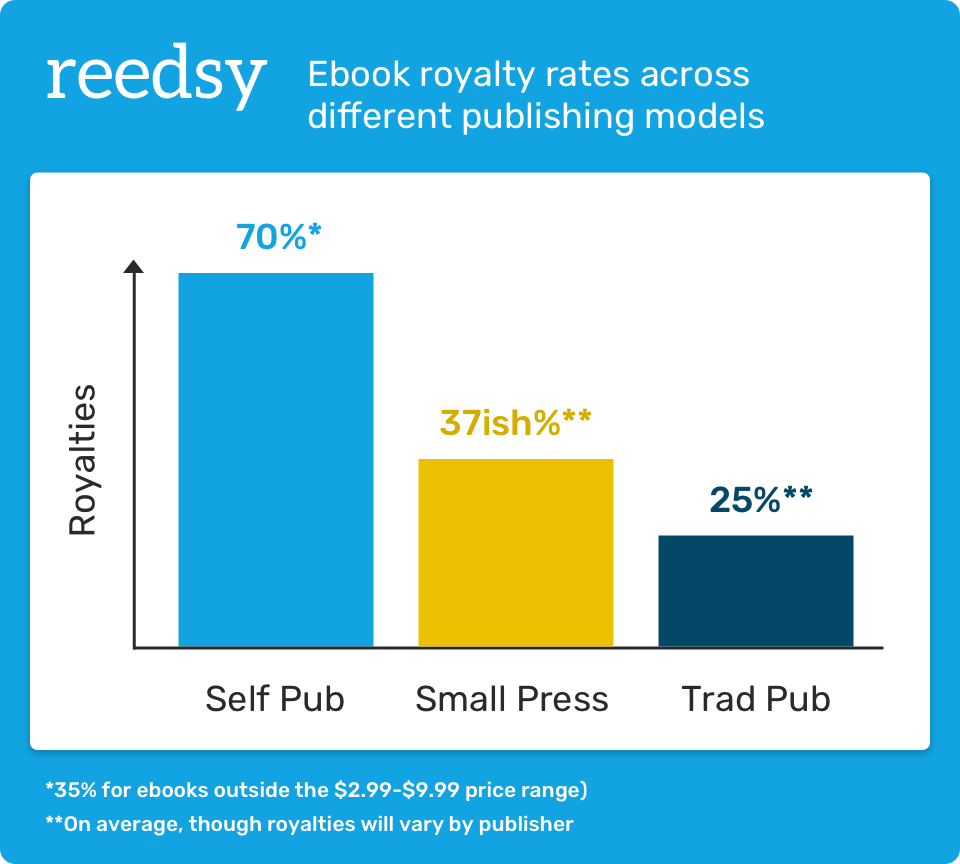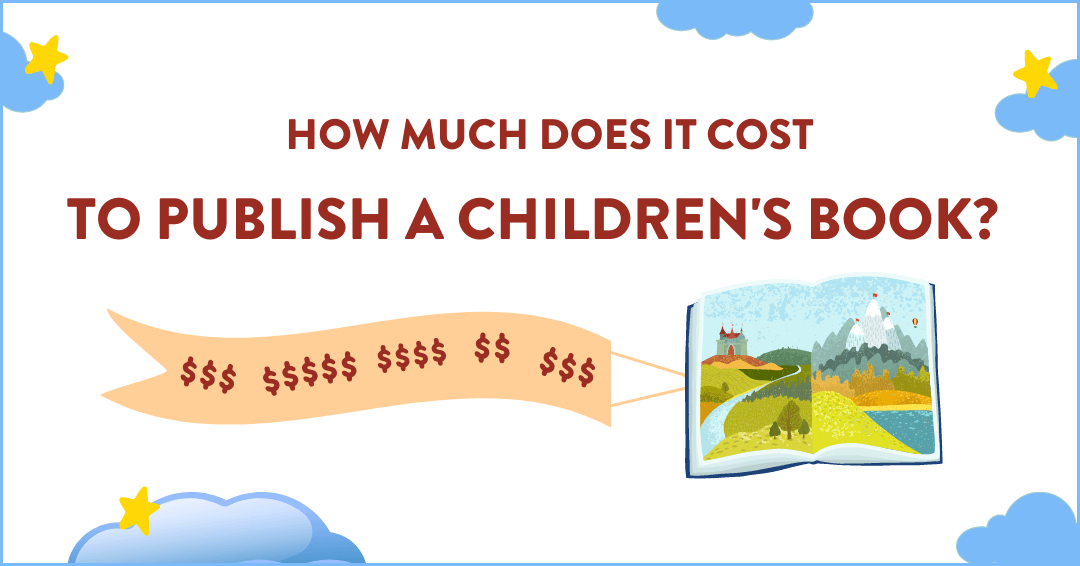Have you ever wondered how much money you can really make by self-publishing a book? It’s one thing to dream about seeing your name on a cover, but quite another to understand the dollars that follow.
If you’re thinking about writing and publishing your own book, knowing the potential earnings can help you decide if it’s worth the effort. You’ll discover the key factors that affect your income, realistic expectations, and tips to maximize your profits.
Keep reading—your future as a self-published author might surprise you.

Credit: blog.reedsy.com
Earnings From Self-publishing
Earnings from self-publishing vary widely. Some authors make a little money. Others earn a full-time income. Many factors affect how much you can earn. Understanding these can help set realistic goals.
Average Income For Self-published Authors
Most self-published authors earn between $1,000 and $10,000 per year. A small number make over $50,000 annually. Many new authors earn less at first. Income depends on book quality, marketing, and niche. Consistent effort often increases earnings over time.
Factors Influencing Book Sales
Book sales depend on genre and audience size. Marketing strategies impact visibility and sales. Book cover and description affect reader interest. Reviews and ratings build trust and boost sales. Pricing and format options also matter.
Royalties And Pricing Models
Royalties differ by platform and price. Amazon Kindle Direct Publishing offers 35% or 70% royalties. Higher royalties usually require pricing between $2.99 and $9.99. Some platforms pay a fixed amount per sale. Pricing your book right can increase earnings.

Credit: www.dabblewriter.com
Cost Breakdown For Self-publishing
Self-publishing a book involves several costs. Knowing these helps you plan your budget well. Costs vary depending on the quality and services you choose. Some expenses are essential, while others depend on your goals.
Editing And Proofreading Expenses
Editing makes your book clear and error-free. Professional editors charge by word or hour. Basic proofreading usually costs less than deep editing. Prices range from $200 to $2,000 or more. Skipping editing can hurt your book’s quality.
Cover Design And Formatting Costs
A good cover grabs readers’ attention. Designers charge between $100 and $500 for covers. Formatting ensures your book looks right on all devices. Formatting services cost $50 to $300. Poor design or formatting can reduce sales.
Marketing And Promotion Budgets
Marketing spreads the word about your book. Budgets vary from a few dollars to thousands. Common expenses include ads, book reviews, and giveaways. Spending on marketing boosts your book’s visibility. Plan your marketing budget carefully for best results.
Maximizing Your Book Revenue
Maximizing your book revenue means making the most money from your self-published book. Many authors earn more by planning well and using smart strategies. Success depends on how you promote your book and reach readers. This section covers key ways to increase your earnings.
Effective Marketing Strategies
Marketing is essential for book sales. Use social media to share news and updates. Create eye-catching ads on platforms like Facebook or Instagram. Send emails to your readers with special offers. Partner with bloggers or book reviewers for honest feedback. Run giveaways to attract new readers. Consistent marketing keeps your book visible and in demand.
Building An Author Platform
Building a platform means creating a space where readers find you easily. Start a website or blog about your book’s topic. Share useful content regularly to keep visitors interested. Engage with readers through comments and messages. Collect emails to send newsletters and updates. A strong platform helps build trust and loyal fans. Fans often buy your current and future books.
Leveraging Multiple Sales Channels
Sell your book in many places to reach more readers. Use Amazon Kindle, Apple Books, and Google Play Books. Offer print versions on sites like IngramSpark or local bookstores. Try selling directly on your website for better profits. Explore audiobook options to attract different readers. More channels mean more chances to earn money. Each platform has unique readers waiting for your book.

Credit: thejohnfox.com
Comparing Self-publishing To Traditional Publishing
Self-publishing and traditional publishing offer very different paths for authors. Both have pros and cons that affect earnings and control. Understanding these differences helps writers choose the best option for their goals.
Revenue Differences
Self-publishing usually offers higher royalties per book sold. Authors can earn 60% to 70% of the sale price. Traditional publishers pay about 10% to 15% royalties. But traditional publishers may offer an advance payment. This upfront money is not common in self-publishing. Sales volume can be higher with traditional publishing due to wider distribution.
Creative Control And Rights
Self-publishing gives authors full control over their work. Authors decide the cover, title, and content. They keep all rights to their book. Traditional publishers often control design and marketing. They usually own some or all rights for many years. Self-publishing allows quicker changes and updates to the book.
Time To Market
Self-publishing is much faster. Authors can publish within days or weeks. Traditional publishing takes months or even years. This is due to editing, design, and marketing plans. Faster publishing means authors can respond to trends. It also allows more books to be published quickly.
Real Author Success Stories
Many authors have found success through self-publishing. Their stories show real earnings and hard work. These examples help new writers understand what to expect. They reveal both rewards and struggles of self-publishing.
Success in self-publishing is possible but not simple. Authors share their journeys and lessons learned. These stories inspire and guide others on a similar path.
High Earners In Self-publishing
Some self-published authors earn over six figures yearly. They often write in popular genres like romance and thriller. Good marketing and regular book releases boost their income. Digital platforms make it easier to reach many readers. Top authors use cover designs and strong book descriptions. These factors help books sell well on online stores.
Challenges Faced And Overcome
Many authors struggle with editing and cover design. Learning how to promote books also takes time. Some face low sales at first and feel discouraged. Persistence and learning from mistakes help authors improve. Many join writing groups for advice and support. Overcoming these hurdles leads to better book quality and sales.
Tips From Successful Authors
Successful authors suggest writing regularly to build skills. They recommend investing in professional editing and covers. Building an email list helps keep readers informed. Authors advise setting realistic goals and tracking progress. Understanding your target audience improves book marketing. Most stress patience and consistent effort over quick success.
Frequently Asked Questions
How Much Money Can I Make Self-publishing A Book?
Earnings vary widely based on sales, pricing, and marketing. Many authors earn a few hundred to several thousand dollars annually. Successful books can generate substantial income, but consistent promotion and quality content are key to maximizing profits in self-publishing.
What Affects Self-publishing Book Royalties?
Royalties depend on the platform, book price, and format. Amazon Kindle Direct Publishing offers 35%-70% royalties. Print books usually yield 40%-60%. Higher prices and exclusive distribution can increase earnings. Understanding these factors helps authors set realistic income expectations from self-publishing.
How Long Does It Take To Earn From Self-publishing?
Earnings typically start after the book launches, but steady income may take months. Initial sales depend on marketing efforts and audience reach. Building a readership and consistent promotion can accelerate income growth over time in self-publishing.
Can Marketing Increase Self-publishing Book Profits?
Yes, effective marketing boosts visibility and sales. Strategies include social media, email lists, ads, and book reviews. Good marketing helps attract readers, increasing royalties and overall earnings. Investing time in promotion is crucial for financial success in self-publishing.
Conclusion
Earnings from self-publishing vary a lot by author and book. Some writers make just a little money, while others earn full-time income. Success depends on good writing, marketing, and patience. Many authors earn steadily over time, not instantly. Self-publishing lets you keep control and earn more per sale.
It takes effort, but the rewards can be worth it. Think of it as a long journey, not a quick win. Keep learning and improving your books. Your income can grow as you gain experience and readers.